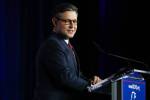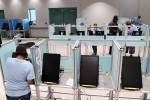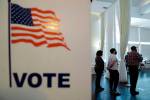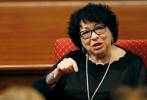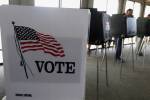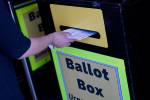Democrats want to see your photo ID
We're used to Democrats saying one thing and doing another, but the hypocrisy that will unfold at some local presidential caucus sites Saturday will surprise even hardened cynics.
For decades, Democrats have stood against strengthening voter identification standards at polling sites. Modest identification reforms have been enacted in about half the states, with a handful of them requiring photo identification to prevent election fraud and uphold the integrity of balloting.
Although Americans need photo ID to write checks, use credit cards, board airplanes and even collect welfare benefits, Democrats have argued that lower-income and minority citizens are less likely to possess acceptable identification, and therefore more likely to be denied their right to vote.
The party and loyal special interests have spent millions of dollars on court challenges against photo ID laws, comparing them to poll taxes -- even when governments issue photo identification free of charge. The U.S. Supreme Court heard arguments on the issue last week and could decide the constitutionality of photo identification laws once and for all.
But for Saturday's much-anticipated caucus, the state party is poised to demand that Strip workers -- many of them minority, low-income citizens -- furnish ID to participate in the "at-large" sites set up near major hotels to accommodate them.
Neighborhood caucus sites will have the registration rolls for their precincts. But because registered Democrats from all corners of the county will be working on the Strip on Saturday, the state party must check at-large participants against a massive voter database. That requires identification -- signatures alone won't do. Some Strip workers will have no alternative but to provide photo identification.
The very inconvenience that supposedly disenfranchises voters is necessary to protect the validity of a party caucus, where people openly debate the merits and shortcomings of candidates for president?
It reminds us of last year's Democratic efforts to impose the card-check system on union elections that would otherwise be decided by secret ballot. Party leaders insisted that having labor groups solicit and collect votes in person would not result in harassment and intimidation. Meanwhile, in congressional leadership elections, Democrats were so fearful of suffering political retribution for publicly revealing their allegiances that they voted in secret.
During tonight's Democratic debate at Cashman Center, you might hear candidates call for energy independence ... then rule out opening coastal areas and the Arctic National Wildlife Refuge for oil and gas exploration. You might hear candidates demand more affordable health care ... then propose costly new regulations and government mandates. You might hear candidates command better job protections for workers and higher wages for the middle class ... then advocate huge tax increases on the wealthy investors who provide capital and create jobs.
In its defense, the Democratic Party is a private organization that's free to decide who can join and under what circumstances they can participate. But you can bet that when state party leaders celebrate the conclusion of this week's caucus events, they'll be having their cake and eating it, too.


















